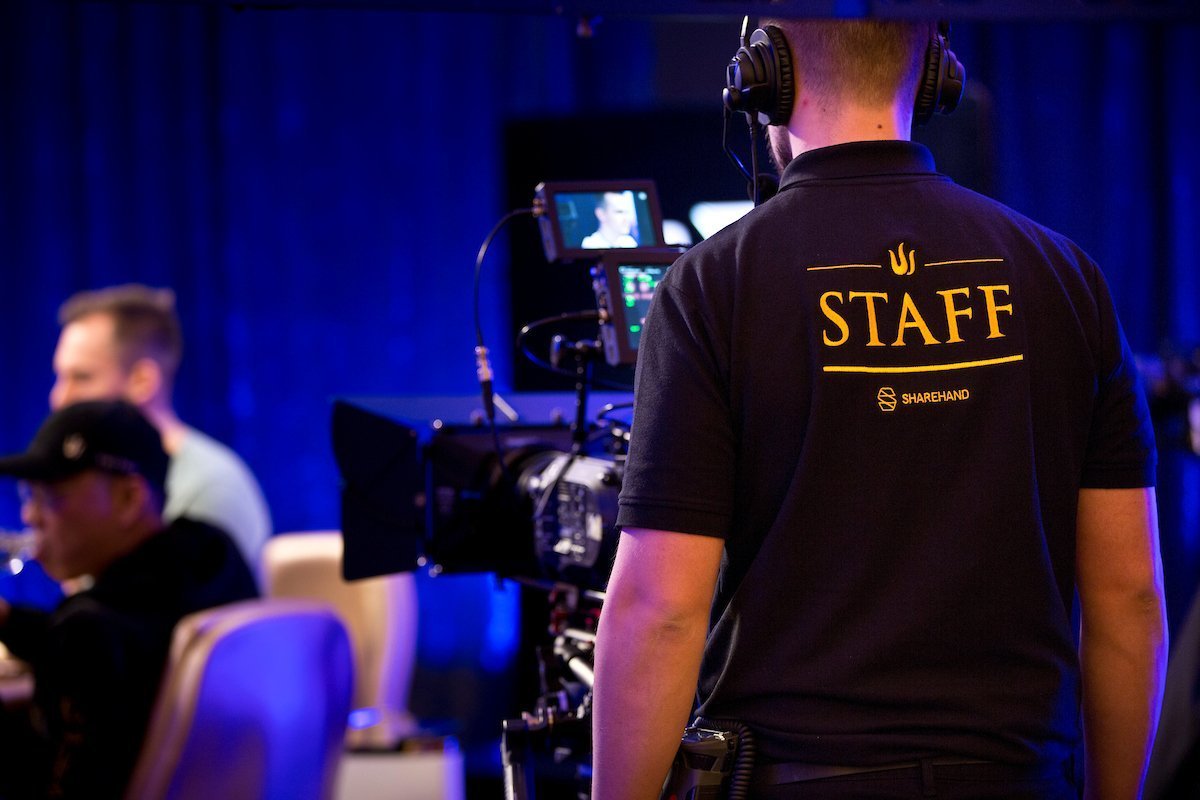It’s the second day of eight at the Triton Series Jeju and already we’re entering the phase of this festival where you don’t know where to look. On the feature table stages, Event #1 is playing from three tables, down to one and then crowning a champion. Then in surrounding tournament room, Event #2 is getting under way, with another shimmering galaxy of stars taking their seats.
The best view of the feature table action is of course to be had via the live stream. But we’ll be keeping an eye on the outer tables too, and welcoming what seems likely to be a bigger field even than the opening event. That’s largely because the buy-in for this second tournament is double that of the first: they’re stumping up HK$500,000 (US$64,000 approx.) to play.
Once more, they’re playing short deck, which means it’s another day at school for almost all the players, dealers and reporters. We’re all still getting used to the new strategies of short deck play, and it’s a fascinating process.
READ A SHORT-DECK HOLD’EM EXPLAINERYesterday, Triton co-founder Richard Yong told us about his passion for short-deck, and his particular pride at introducing the game to the world. Yong suggested there had been only about 10 short deck tournaments ever played, but he’ll probably be delighted to learn that he’s wrong about that. It is catching on more quickly than Yong possibly realises.
I searched The Hendon Mob database for short-deck tournaments, and found that the go-to poker tournament results site now has a dedicated money list for short-deck events . There’s no surprise to see Jason Koon at the top — he has four in-the-money finishes in short-deck tournaments, including his spectacular US$3.5 million win at Triton Montenegro — but it’s much more interesting to look further down the list.

In total so far, 184 players have cashed in short-deck events, with a player named Pam Hawton currently 184th. Hawton, from Brisbane, Australia, has two recorded cashes to her name, the second of which came in October last year at Southport Sharks Casino, Southport, Australia. Whoever runs the poker room there spread a short-deck event that cost AU$35 to enter. That’s about US$25, or approximately 2,560 times smaller than the buy-in for today’s Triton short-deck event. There were 71 entries and 16 re-entries, but it’s indicative of a clear trend that this game is being played at all levels of the poker pyramid.
Similarly, there have been short-deck events at Dusk Till Dawn in Nottingham, Great Britain (that one cost £50 to enter, or about US$66), and also at the Amateur Poker Association (APAT) event in Newcastle, where the buy-in was £33 (or US$43). Perhaps most excitingly is the fact that short-deck has also made its debut on the Brazil Series of Poker (BSOP), specifically at an event in Sao Paulo in December.
Brazil is in the grip of what seems to be a never-ending poker boom, and 197 players duly paid the 1,150 Brazilian Real (USD$300) to play the event. That clearly demonstrates an appetite for short-deck in Latin America’s poker hot-bed too, which can only mean great things for the world game.
Although some commentators in the west are still yet to be convinced whether short deck is here to stay or is a passing fad, the evidence at present points to the former. The game that began among the super high rollers of Asia has spread all the way from top to bottom in the poker pyramid, and that is very encouraging indeed.

